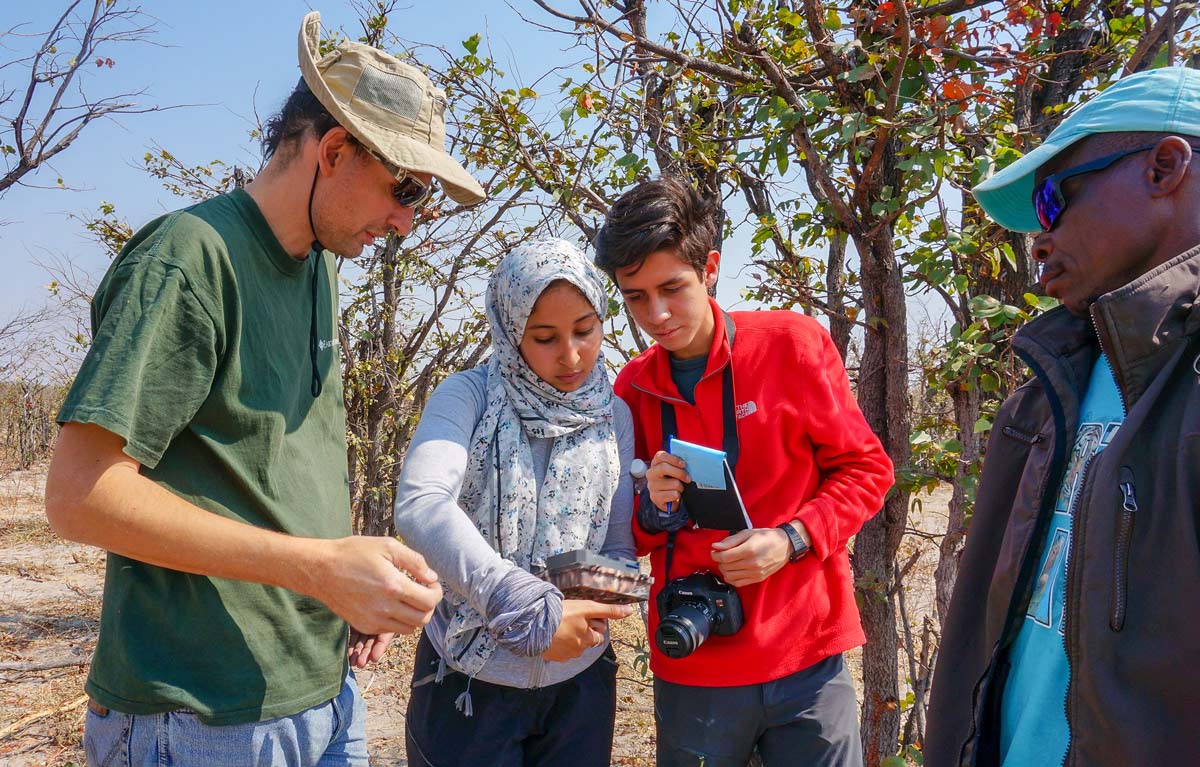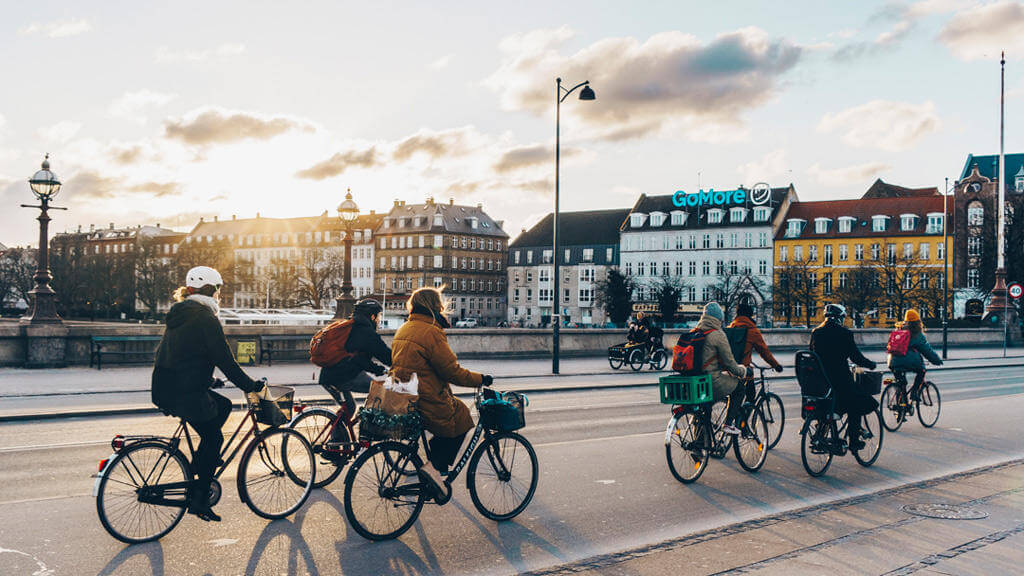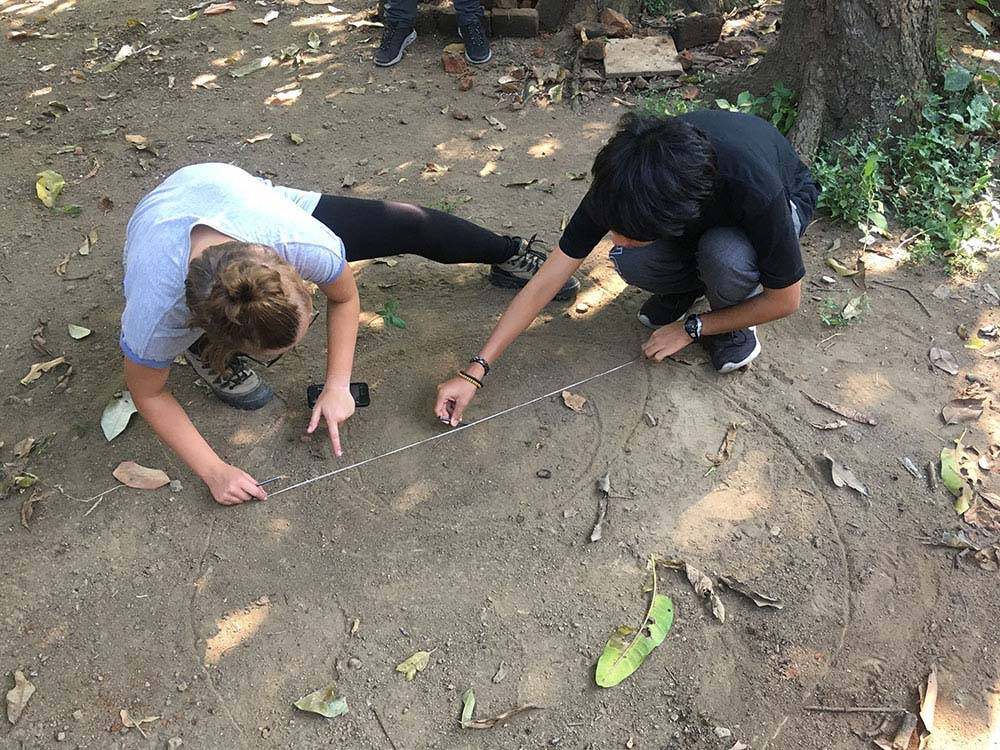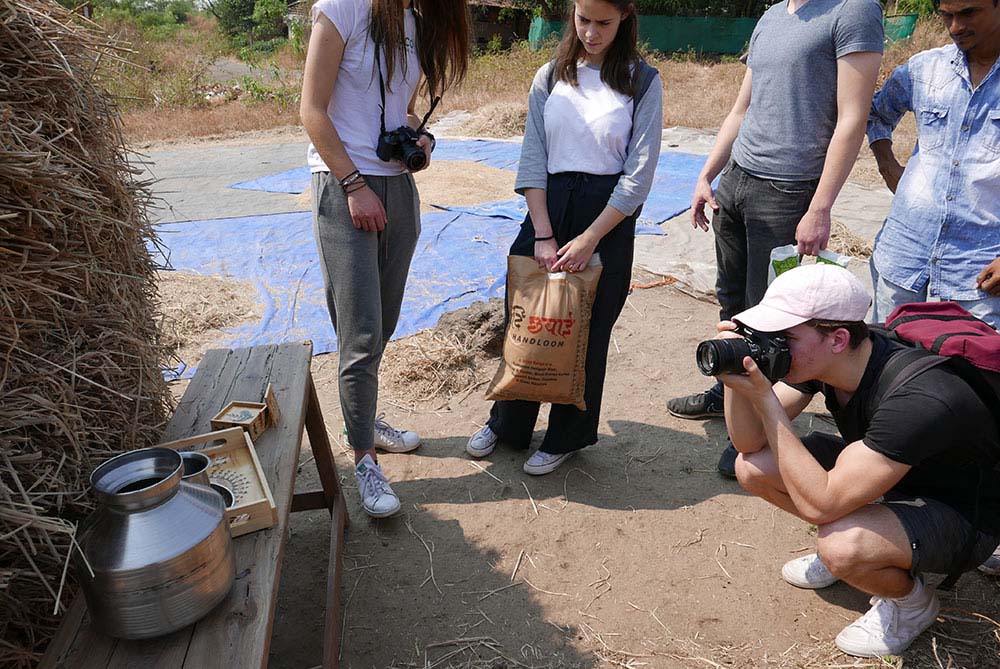1) Hi Nada, can you tell us what you've been up to since graduating from THINK Global School in 2022? Since graduating in 2022, I've been pursuing a passion I found while at TGS, sustainability, and I am currently majoring in engineering in renewable energy systems at Al Akhawayn University, in Ifrane, Morocco. But there is way more than that! I've had a chance also to explore the world of...
Read MoreAfter spending five weeks at home with their family and friends following their inaugural TGS term in Botswana, our Changemaker Cohort 2 students set out for the second term of their school year: eight weeks in Mumbai, India. If India and Botswana sound like polar opposites, well, that’s because in many ways they are. We choose to start the year in Botswana due to its simplicity — it’s the perfect place for our students, who were all new to the school and hail from over 20 different countries, to get to know one another free of technology and the trappings of modern life. They are encouraged to disconnect from the internet and connect with one another, a daunting proposition that often proves cathartic after years of persistent online use.
Given our Changemaker Curriculum’s focus on project-based learning, Botswana’s low-key nature and incredible wildlife make it the ideal setting to introduce this method of learning. We do so by having them participate in our Conservation & Storytelling module, and for many of our students, this is the first time they’ve been presented with the opportunity to answer a driving question with near limitless flexibility.

Students conduct transect work in Botswana
What we refer to as a teacher-led module (TLM), the three-week multidisciplinary Conservation & Storytelling module examines contested environmental issues in Botswana from different perspectives. Students participate in a weeks-long conservation study led by local experts and learn the importance and power of storytelling customs in Botswana. At the end of the term, students presented their ecological findings via the form of a story during our end-of-term showcase.
During each term following Botswana, our students have the choice of selecting from one of three teacher-led modules to participate in, alongside designing and orchestrating 3-5 personal projects of their own choosing. While each of these modules and projects explore different topics and themes, they are linked by a system of learning targets that guide all learning at THINK Global School. These learning targets are representative of applicable, real-life skills that will benefit our students in high school and beyond. The learning target categories are:
21st Century Skills
| Visual Literacy | Information Literacy | Multicultural Literacy |
| Global Awareness | Adapting/Managing Complexity | Self-Direction |
| Creativity | Risk-Taking | Teaming and Collaboration |
| Critical Thinking | Effective Communication |
Learning Targets
| Visual Literacy | Information Literacy | Multicultural Literacy |
| Global Awareness | Adapting/Managing Complexity | Self-Direction |
| Creativity | Risk-Taking | Teaming and Collaboration |
| Critical Thinking | Effective Communication |
As our students’ progress through countries and years, they also increase their mastery of learning targets — a key requirement to graduate. Upon arrival at TGS, each student has a blank slate in terms of learning targets, but based on the quality of their work and their ability to demonstrate competency during modules, they will begin to move up the ranks from novice to specialist, and in areas they truly care about, to master. To graduate from THINK Global School, students must achieve the rank of novice in 70% of learning targets, 30% in specialist, and complete one mastery project. In this way students have the freedom to pursue the skills they care about, while still gaining a well-rounded education.
India Modules
In India, like all of our countries, each teacher-led module presents a different theme and asks students to answer a complex real-world problem specific to the country they are inhabiting. Given Botswana’s successes and challenges with conservation, this explains why students tackled that theme during their time in country. Incredible India, an outsized character on the world’s stage, provides an entirely different set of themes for our students to dive into during their upcoming term. Here is a look at the three teacher-led modules that students chose from for their time in Mumbai:
India’s Path to Sustainability
In this module led by educators Jarret Voytilla and Christine Randall, participating students gained an understanding of the sustainability issues linked to population distribution and densities in the world through an exploration of urban planning in India.
Students were asked to answer the driving question “How can urban settlements be planned to balance sustainable development and quality of life?” by planning and designing a city using City Skylines software that reflects their learning of sustainability and urban planning throughout the module. At the end of the term for their summative assessment, they produced a video explaining their planning, design decisions, and the key features that dictate quality of life for their cities’ residents. Through the course of their time in Mumbai and through meetings with local experts such as municipal planners, they learned how to answer:
-
How does a city fail?
-
To what extent are economic growth and sustainable development compatible within a city?
-
How can different perspectives (socio-political, cultural) influence potential planning choices and solutions to problems?
-
To what extent are economic growth and sustainable development compatible within a city?
-
How do personal/citizen choices and behavior impact sustainability of a settlement.
Students also used the knowledge they gained from their experiences to identify a planning need in their own home city and presented a potential evidence-based solution during their project-based learning showcase.

Students work with architect and urban planner Akhila Suri
For their weXplore, students traveled south to the tropical state of Kerala, where they had an opportunity to see Indian city planning on a very different scale than the megacity of Mumbai.
You can watch one of our group’s, consisting of students Che and Giulia, presentations below along with their suggestions for improvements to Giulia’s home city of Copenhagen.
Copenhagen Improvements

Image Credit: Visit Copenhagen
A big problem in Copenhagen is the cyclists. Even though we have bike lanes everywhere, they still drive on the sidewalks and the roads. The reason this is happening is due to a planning issue and behavioral issue. A lot of people are just too lazy to cross onto the other side of the road so they just bike on the wrong side, but the way the roads are built also allow bikes to easily acces the sidewalks and main roads. This results in accidents happening all the time(17,500 bikers having to be treated in the hospital each year), with bikes hitting pedestrians and cars hitting bikes. During our session with WRI, we learnt how to make cities safer for pedestrians, especially by intersections. A solution that we learnt at WRI for this specific problem would be to build bollards after the zebra crossings and planter beds between the bike lanes, roads and sidewalks. The bollards prevent bikes from going on the sidewalks and the planter beds separate the three different methods of transport.
From Zero to Infinity
In this mathematics-focused module led by educators Emma Gleeson and Dan Garvey, students were tasked with answering the driving question of “How have mathematical thought processes evolved from different ancient cultures?”. To do so, they looked at how India has contributed to math, capturing that at a local level in Mumbai, then looking at how the advances in math were received by other countries and scholars. Students also took part in a comparative study examining how mathematics developed in India versus Europe as a result of cultural diversities.

Students use mathematics to construct a traditional Hindu fire altar
To demonstrate their learning, participating students paired up to produce two summative pieces: an infographic illustrating the birth of a mathematical concept and two written and illustrated stories that are timeline based and include a number of creative challenges along the way. Each team examined at least two different cultural perspectives and at least two mathematical breakthroughs per culture.
For their weXplore, students participating in the From Zero to Infinity module traveled to the northeastern state of Meghalaya, where they focused their exploration on three fundamental areas of understanding:
-
Caves and ecosystems
-
Three hill tribes
-
Traditional Meghalayan food
Through place-based study of these aspects of cultures and ecology, students learned about niches within ecosystems and societies.
TGS Gives Through E-Commerce
In this module led by educators Chung Man Chan and Matt Wolfgram, students were introduced to some of the concepts and mechanics of the vast arena of e-commerce. Due to higher wages and more employment opportunities being available in India’s megacities, urbanization has exploded here over the last few decades, leaving those artists who choose to reside in rural areas with a smaller market to sell their wares. Given the recent explosion of e-commerce, however, new opportunities exist to replace this decline base with one that is exponentially larger. With that in mind, participants in this module set out to answer the driving question of “How can Indian e-commerce solutions aid local economies, communities, and artisans?”

Keo photographs artisan wares for his e-commerce project during our 2017 India term
To accomplish this, students liaised firsthand with rural Warli artisans on their current business frustrations and attempted to provide a solution-focused website platform meeting their stated needs. Student projects showcased their dialogue (pitch deck) and solutions to the e-commerce problems discovered in the form of a website prototype (this could be inclusive of hosting demands, a payment platform, and advanced data analysis). Once the term is over, the website is left up so that the artists can continue to benefit from e-commerce long after our students have left India.
Visit the Storefront
You can make your own purchases of authentic Indian art at The Power of Craft, an e-commerce storefront started by CM2 student Chase P. and his classmates as the summative assessment for their project.
Next Up For CM2: Japan
With their India term ending this week, our CM2 students will head home to spend time with their family and friends before jetting off to Japan to engage in entirely new project-based learning modules. Themes for those modules include the effects of marketing in Japan, the question of nuclear and renewable energies, and how virtual and augmented realities can be used to make global experiences more accessible.

Credit: Manuel Cosentino